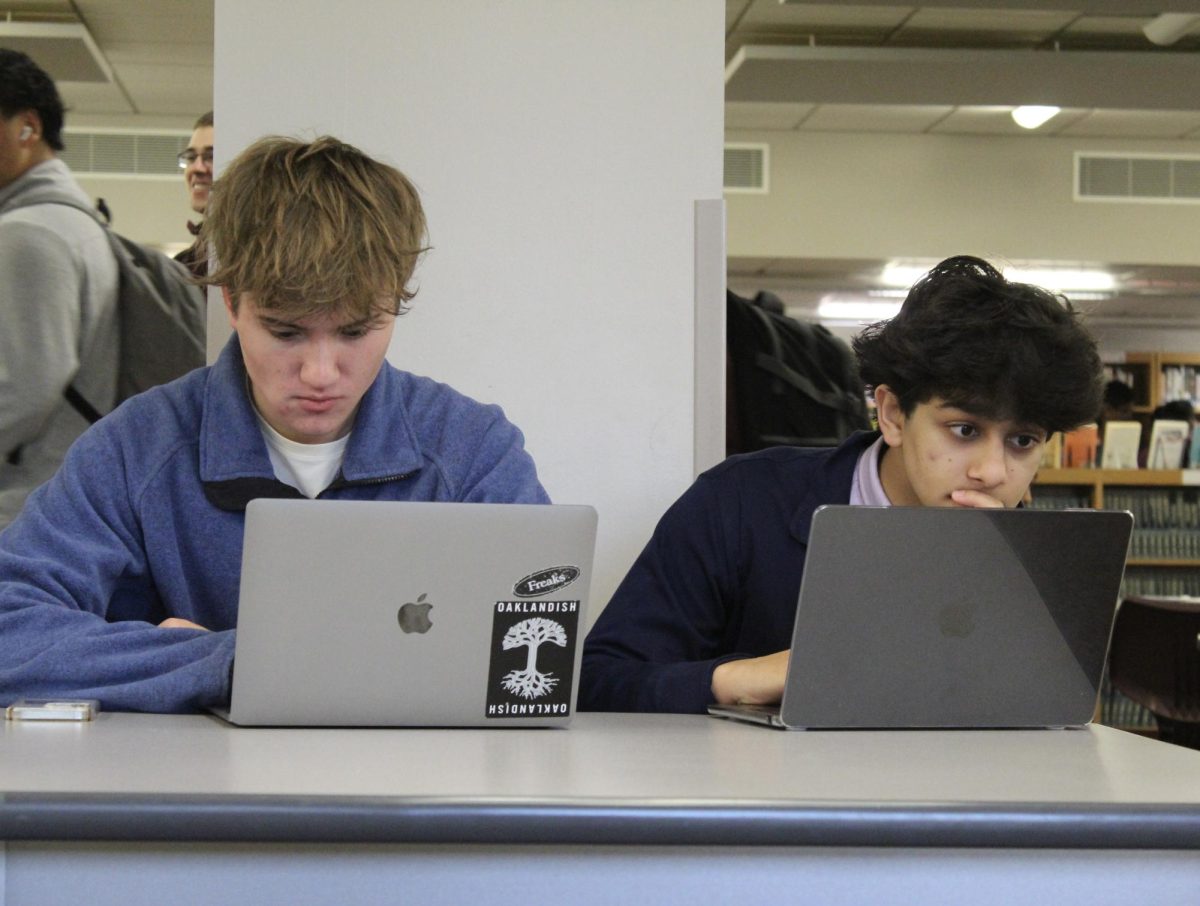By Lily Chen, Design Editor
Juniors Ayan Kumar and Raycer Verrecchia are working with Dr. Patrick Gately, TESD curriculum supervisor for English Language Arts, Health and Physical Education, to consider possible revisions to the district’s elementary-level family life curriculum.
Kumar and Verrecchia both have siblings in fifth grade. Last year, in fourth grade, they participated in the elementary school family life curriculum. In fourth grade family life classes, students learn about HIV and AIDS, which is required by the Pennsylvania State Board of Education, along with human reproductive systems, puberty and hygiene.
While helping his sister with her homework, Verrecchia noticed that some information in the district-issued family life packets was incomplete or inaccurate. The packet stated there are three HIV drug classes despite the National Institutes of Health (NIH) currently recognizing eight. Verrecchia reached out to Kumar, who noticed similar issues, and the two have been working to resolve the inaccuracies since.
“Something we noticed when (our siblings) were bringing back the family life curriculum of HIV and AIDS was that the statistics were completely inaccurate,” Kumar said. “We decided that we wanted to make a change to make sure that these children are getting accurate statistics and information so that our younger generation can thrive and get the right education that they deserve.”
Kumar and Verrecchia initially had plans for a complete curriculum overhaul. However, Gately said that this was unnecessary. He suggested that they provide a student perspective on the current curriculum and suggest possible revisions. Gately currently facilitates their research and gathers feedback from teachers.
Gately is grateful for Kumar’s and Verrecchia’s help in providing a new perspective on the current curriculum.
“Beyond revisions, to make a major overhaul or to fundamentally change the curriculum would take a district committee and that would be a major process,” Gately said. “But, (Kumar and Verrecchia) have been really helpful in terms of the student perspective — they’ve also taken a look at the curriculum, gone back and reviewed it and tried to indicate places where, as students, they feel like it could use revising, where information could be more up to date, (where) information could be more engaging for students.”
The information that Kumar and Verrecchia are looking over is not solely statistical. Inaccurate material includes outdated treatment plans for suppressing the HIV virus, missing symptoms and general gender stereotypes.
“Raycer and I went through the entire curriculum for elementary, middle school and high school health, fitness and family life,” Kumar said. “We believe some teachings could be improved to better (fit) societal norms because they were kind of outdated in the way they displayed stereotypes — it felt like they were enforcing the stereotypes. The way we approached that was offering a different way that can make (the material) more comprehensive.”
Kumar and Verrecchia hope to show that students are passionate about learning up-to-date and accurate material.
“In the future, I hope that the curriculum will be changed and that students will be getting accurate information,” Kumar said. “Over the next couple of years, I hope that students will continue to do revisions that will make the education be as perfect as possible, and thus, allow students to get the best education.”
Lily Chen can be reached at [email protected].






















































































